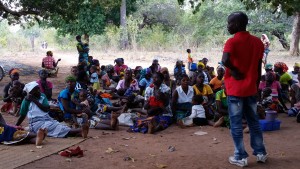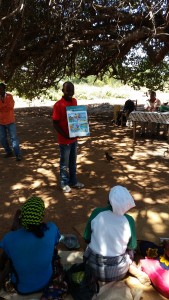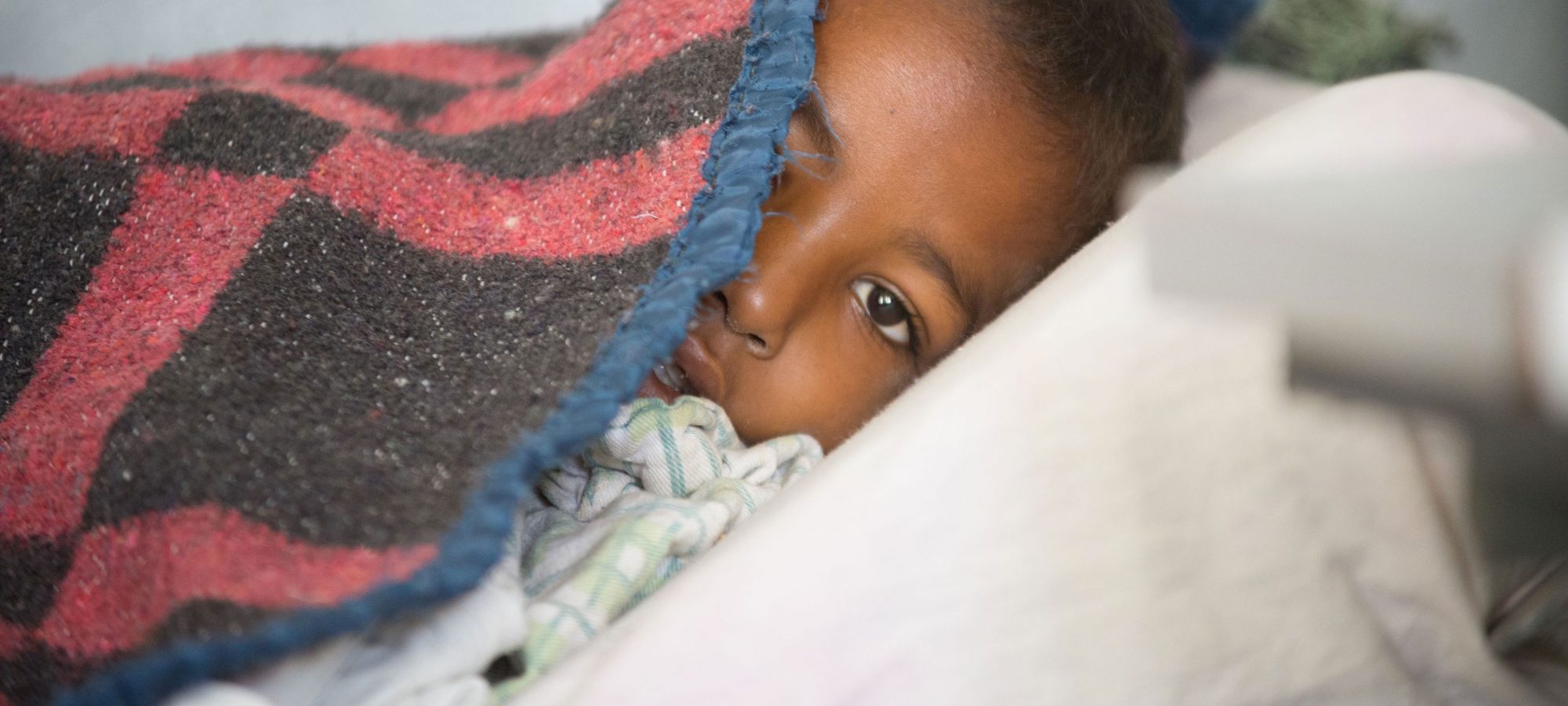By Eder Ismael
 Neglected tropical diseases (NTDs) constitute a serious obstacle to socio-economic development, quality of life and reducing poverty. In Mozambique, NTD rates are extremely high; the most common NTDs include schistosomiasis (or bilharzia), trachoma, intestinal parasites, lymphatic filariasis (LF) and onchocerciasis. Mass treatment campaigns have been implemented in recent years, but so far, efforts to involve the affected communities have been limited.
Neglected tropical diseases (NTDs) constitute a serious obstacle to socio-economic development, quality of life and reducing poverty. In Mozambique, NTD rates are extremely high; the most common NTDs include schistosomiasis (or bilharzia), trachoma, intestinal parasites, lymphatic filariasis (LF) and onchocerciasis. Mass treatment campaigns have been implemented in recent years, but so far, efforts to involve the affected communities have been limited.
Malaria Consortium has been supporting the Provincial Health Directorate of Nampula to implement an approach that will increase community participation in the prevention and control of these diseases. Community participation is essential in the timely identification of patients and the promotion of preventive practices, such as hygiene and the handling of water. The community dialogue approach is a form of social mobilisation which improves knowledge, attitudes and practices at the community level and promotes ownership of health issues.
The approach has been tested in four districts of Nampula province and has been successful in raising the level of knowledge about the disease schistosomiasis.
The Provincial Health Directorate of Nampula and Malaria Consortium, with support from the Centre for NTDs at the Liverpool School of Tropical Medicine, are also testing how the approach can provide a mechanism to facilitate community initiatives for better home care of people suffering from the disease caused by LF.
We interviewed the head of the NTD Programme of Nampula Province, Dr. Solomon Ercílio Jive, to gather his views
on the situation of these diseases in the province and the partnership with Malaria Consortium in the fight against NTDs.
Tell us about your job?
My role is to monitor, evaluate and implement community interventions for the prevention and control of NTDs as a whole, with an emphasis on diseases that are preventable through chemotherapy such as, LF, onchocerciasis, shistosomiasis, intestinal parasites and trachoma. Under the partnership between the Provincial Health Directorate and Malaria Consortium, I am the focal point of the community dialogues for the filariasis project, which is a continuation of the project of community dialogues on schistosomiasis (or bilharzia), which ended in March 2016.
What are the main challenges for the NTD programme?
We have specific targets to control the diseases, and to eliminate some, especially LF and trachoma by 2020. To achieve these objectives we must:
• Achieve greater population coverage in preventive chemotherapy campaigns
• Seek funding and support for the control of other tropical diseases that are not preventable by chemotherapy, as there are 17 diseases in total and so far only four of these benefit from direct funding
• Intensify awareness and social mobilisation efforts so that all rural communities have better understanding of tropical diseases, through radio spots, lectures, debates, community dialogues, and greater distribution of information and educational material
• Extend the community dialogues regarding LF and schistosomiasis to all districts of the province and if possible integrate other NTDs
What are the main challenges for the community dialogues approach?
We believe in the potential of the community dialogue approach to improve community participation in the prevention and control of diseases. However, we need more support and funds to cover more districts and to train community facilitators who will contribute to the intensification of social mobilisation and the dissemination of information on diseases, how to prevent and how to treat them.
 What do you expect to accomplish with this project?
What do you expect to accomplish with this project?
This year, the province conducted a mass treatment campaign for LF in the 23 endemic districts, which saw more than three million people treated. For the treatment of hydrocele cases (complication caused by LF), surgeries are performed in seven operating theatres throughout the province, with financial support from the Centre for Neglected Tropical Diseases at the Liverpool School of Tropical Medicine.
The community dialogue project can complement these efforts by triggering community mobilisation to improve the therapeutic coverage of preventive chemotherapy campaigns against LF, as well as identify patients with chronic conditions caused by LF. Community support for those with life-long conditions caused by LF can help alleviate suffering and possibly stigma . However, there is still no community based system in Mozambique to identify and provide appropriate assistance to patients in their villages. This requires identification of viable and affordable solutions at community level that the Ministry of Health could implement in a sustainable way.
The Memorandum of Understanding between the Provincial Directorate of Nampula Health and Malaria Consortium aims to provide one of those solutions, through the creation of community dialogues on LF, representing a commitment to support the Ministry of Health in efforts to fight communicable tropical diseases. The lessons drawn from this project will help to develop more effective interventions.
What is the most valuable part of this project?
Community dialogues serve to fill information gaps on health among community members, identifying problems and helping communities to take collective decisions for improvement of health practices. These help in the formation of new habits, particularly in relation to timely care-seeking, and thus contribute to achieving the goals outlined in the economic and social development plan of the province.
